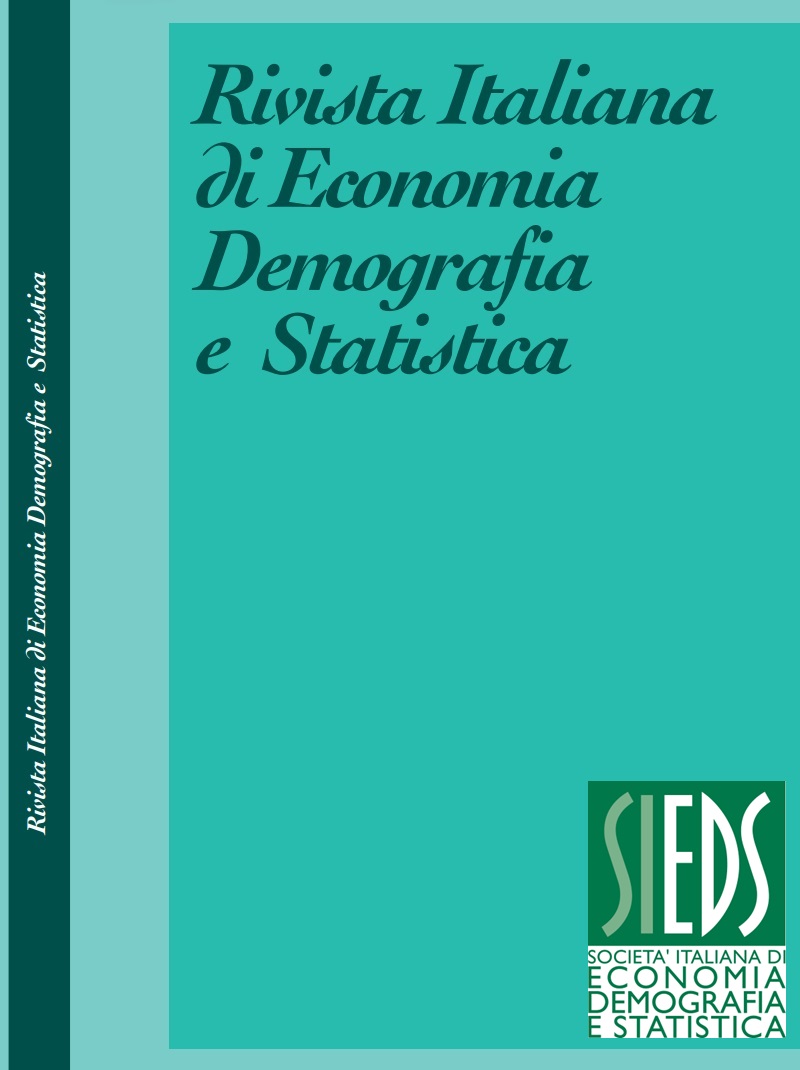What tools for a governance of AI solutions to support Official Statistics?
DOI:
https://doi.org/10.71014/sieds.v79i2.390Abstract
Artificial Intelligence (AI) refers to the ability of computers to perform repetitive tasks that would usually require the presence of human intelligence. AI can become a powerful tool in support of Official Statistics, innovating traditional approaches to statistical information production processes throughout the entire data life cycle. To fully exploit the potential of AI initiatives, it is not enough to adopt advanced technology solutions but it becomes strategic to integrate them into a reliable, transparent and consistent framework.
While the speed at which AI solutions are being developed augurs an increasingly rich future of opportunities, it must also find producers of official statistics ready not only to embrace the innovative stimuli but also to know how to guide and govern them to take into account the ethical demands that such a challenge entails. This translates into the need to adequately increase the skills required in the various areas affected by AI while stimulating a reflection on how to equip oneself with a standardized approach and processes to develop AI-based solutions that are in line with the agency's strategic objectives.
Istat has activated several experimental projects for the use of artificial intelligence to support the production of statistical information.
In parallel, through dedicated workshops, training moments and monitoring of the initiatives, it is pursuing a path to build a specific framework for the introduction of AI in the Institute, with the aim of aligning the ethical priorities of AI, ensuring its inclusiveness and sustainability.
In this paper, we present the Institute's experience in the conception, development, and early AI-based use cases, highlighting its challenges and most significant milestones.
We also illustrate how, through the integration of use cases into a reliable and effective monitoring and governance ecosystem, AI applications can be overseen to mitigate their risks without reducing their innovative scope.
References
AGID 2023. Piano Triennale per l’Informatica nella Pubblica Amministrazione 2024-2026.
AGID 2024. Strategia Italiana per l’Intelligenza Artificiale 2024-2026.
AI-HLEG HIGH-LEVEL EXPERT GROUP ON AI, 2019. Ethics guidelines for trustworthy AI. https://digital-strategy.ec.europa.eu/en/library/ethics-guidelines-trustworthy-ai
BENANTI P. 2022. Human in the loop. Decisioni umane e intelligenze artificiali. Milano: Mondadori.
DJEFFAL C. 2022. Intelligenza artificiale e pubblica amministrazione in Germania. Riflessioni sui principi orientativi di carattere normativo a partire dall'esperienza tedesca. Teoria e Critica della Regolazione Sociale / Theory and Criticism of Social Regulation, Vol 2, No 23, pp. 179-197
DE ALMEIDA P. G. R., DOS SANTOS C. D., FARIAS J. S. 2021. Artificial Intelligence Regulation: a framework for governance. Ethics Inf Technol, Vol. 23, pp. 505–525. DOI: https://doi.org/10.1007/s10676-021-09593-z
EUROPEAN PARLIAMENT, COUNCIL OF THE EUROPEAN UNION 2024. Regulation (eu) 2024/1689 of the European Parliament and of the Council of 13 June 2024 laying down harmonised rules on artificial intelligence and amending Regulations (EC) No 300/2008, (EU) No 167/2013, (EU) No 168/2013, (EU) 2018/858, (EU) 2018/1139 and (EU) 2019/2144 and Directives 2014/90/EU, (EU) 2016/797 and (EU) 2020/1828 (Artificial Intelligence Act)
FONDAZIONE ICSC CENTRO NAZIONALE DI RICERCA IN HIGH PERFORMANCE COMPUTING, BIG DATA E QUANTUM COMPUTING - SOCIETAL IMPLICATIONS AND IMPACT RESEARCH GROUP - OSSERVATORIO. 2024. AI Act: Raccomandazioni per un uso responsabile ed etico dell’Intelligenza Artificiale nella Pubblica Amministrazione. https://www.supercomputing-icsc.it/wp-content/uploads/2024/05/AI_PA_Raccomandazioni_13maggio2024.pdf
GARTNER 2023. How to Pilot Generative AI. https://www.gartner.com/en/doc/797246-how-to-pilot-generative-ai
HLG-MOS White Paper 2023, Large Language Models for Official Statistics. Modernstats
LU Q., ZHU L. , XU X., WHITTLE J., ZOWGHI D., JACQUET A. 2024. Responsible AI Pattern Catalogue: A Collection of Best Practices for AI Governance and Engineering. ACM Computing Surveys. Vol. 56, No. 7, pp. 1-35. DOI: https://doi.org/10.1145/3626234
MÄNTYMÄKI M., MINKKINEN M., BIRKSTEDT T., VILJANEN M. 2022. Putting AI Ethics into Practice: The Hourglass Model of Organizational AI Governance. arXiv:2206.00335 DOI: https://doi.org/10.1007/s43681-022-00143-x
Downloads
Published
Issue
Section
License
Copyright (c) 2025 Massimo Fedeli, Sara Letardi, Simona Pace

This work is licensed under a Creative Commons Attribution 4.0 International License.



